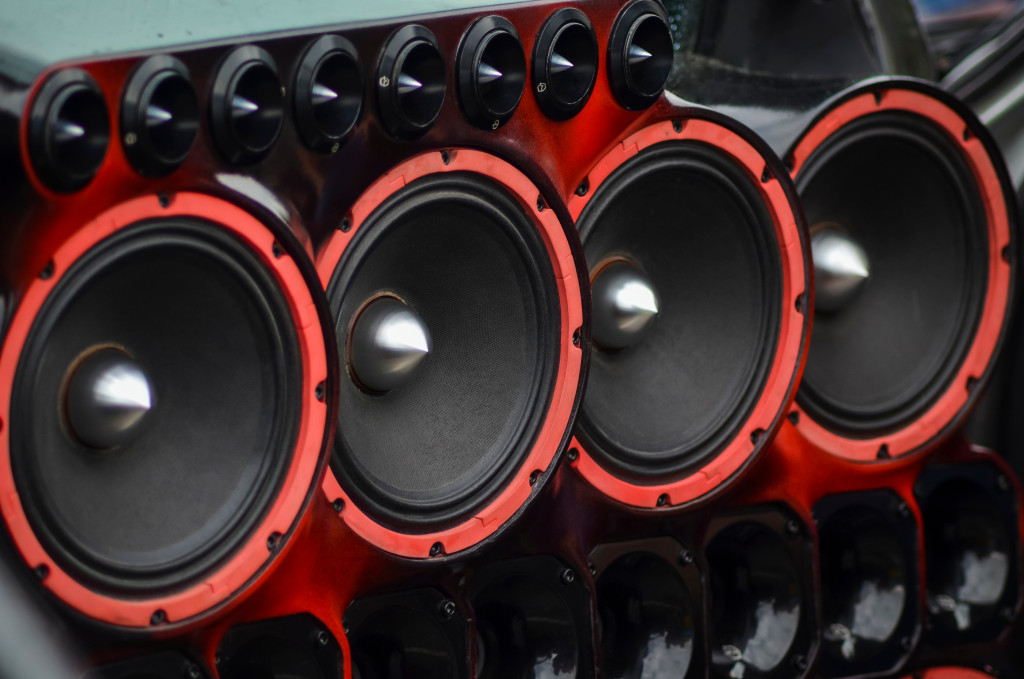Are you interested in starting an audio-video equipment rental business? This can be a great way to earn extra income or make a full-time living. This business is very much in demand, especially with the rise of events and occasions that require audio and visual presentations. Events such as birthday parties, anniversaries, corporate functions, and weddings are just some examples of occasions that would need audio-video equipment. To get started, you’ll need to understand the basics of the audio-video equipment rental business and what it takes to succeed. Here’s what you need to know.
Do your research
The first thing you need to do is research the audio-video equipment rental market in your area. Determine what types of equipment are in demand and how much customers are willing to pay for rentals. You’ll also need to find out if there are any established competitors in your area and what strategies they use to attract customers.
For example, if you’re planning to focus on weddings, find out what other companies are doing to attract wedding clients. Do they offer discounts for booking early? Do they have a loyalty program for repeat customers? You’ll need to determine what makes your audio-video equipment rental business unique and how you can appeal to your target market.

Get your permits and licenses
Any business requires permits and licenses, and an audio-video equipment rental business is no different. A business license, a sales tax permit, or both may be necessary, depending on your location. You can usually apply for these online or in person at your local city or county office.
You may also need to get insurance for your business. This will protect you financially if any of your equipment is damaged or stolen.
Create a business plan
Once you have a good understanding of the market, you’ll need to develop a business plan. This will help you map out the steps you need to take to get your business up and running. Include your plan’s information on your target market, pricing, marketing, and financial projections. Your business plan should also include a list of the audio-video equipment you plan to rent out.
Be sure to research the cost of the equipment and calculate how much you’ll need to charge to make a profit. You should also determine how often you’ll need to replace or upgrade your equipment. This will help you keep track of your expenses and ensure that your business is profitable.
Purchase your equipment
Now it’s time to start sourcing audio-video equipment for your rental business. You can purchase new or used equipment from suppliers or manufacturers. Or, you may wish to rent space in a retail store that specializes in equipment rentals. Whichever option you choose, be sure to get everything in writing so there’s no confusion later.
In addition to the equipment you will rent out, you will also need to invest in the containers that protect your equipment during transport. In this case, you can look for the leading supplier of equipment cases for the audio-video industry, such as Americase. They offer various cases designed to protect your equipment from impact, water, and other elements.
Americase also offers custom case solutions for those who have unique audio-video equipment requirements.
Start marketing
The next step is to start marketing your rental business. Create some promotional materials such as flyers or website listings and distribute them in strategic locations around town. Lucky for you, digital marketing has become more affordable and effective than ever before. You can reach a wider audience through online channels such as social media, Google AdWords, and email marketing.
You may also wish to advertise in local print or online publications. And don’t forget word-of-mouth marketing! Be sure to let everyone know about your new business venture.
Keep track of your transactions
Now that your business is up and running, it’s important to keep track of all rentals and returns. This will help ensure that you’re always stocked with the right equipment and that customers are happy with the service they receive. Designate at least one person to be responsible for managing your inventory and transactions. Keep good records and communicate frequently with customers to keep them coming back for more.
You’ll also need to develop a system for returns and damage claims. Be sure to document everything and keep records of all conversations with customers. This will help you resolve any disputes that may arise.
The bottom line
Starting an audio-video equipment rental business can be a great way to earn extra income or even make a full-time living—but it takes some effort! By doing your research, creating a solid business plan, sourcing quality audio-video equipment, and marketing your business effectively, you’ll be well on your way to success!



